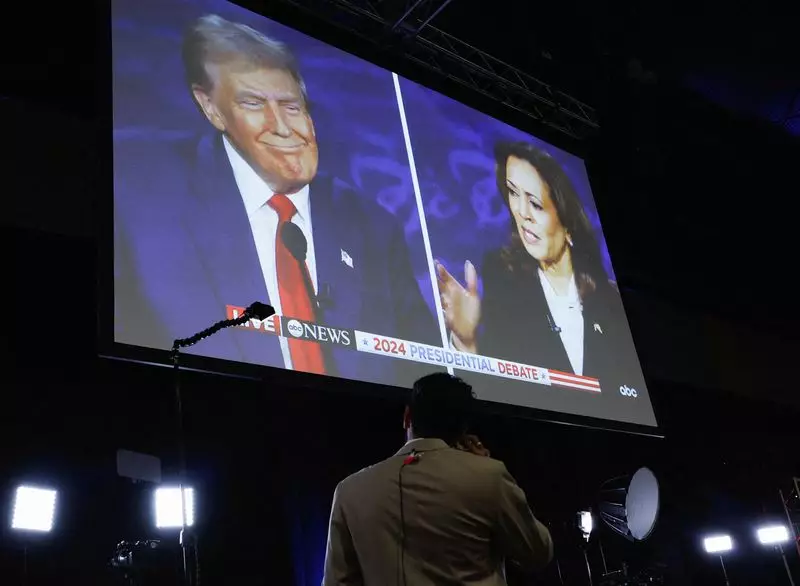Following the closely watched debate between Republican Donald Trump and Democratic Vice President Kamala Harris, Wall Street remained on edge as investors sought clarity on key policy issues. The combative debate covered topics ranging from the economy to immigration and legal woes, but left investors with few new details on issues that could impact markets.
Some observers noted that Harris performed better than expected, leading to a swing in betting markets in her favor. This perceived improvement in her chances at gaining the White House may continue to influence asset prices in the coming days. Eric Beyrich, a portfolio manager at Sound Income Strategies, highlighted the importance of clarity in economic discussions, noting that markets prefer certainty over strident statements.
Despite the shift in prediction markets in favor of Harris, the reaction in asset prices was relatively muted. Stock futures dipped during the debate, with the S&P 500 E-minis down 0.5% and Nasdaq 100 E-minis off 0.6%. The dollar index also slipped 0.2%. Sonu Varghese, a global macro strategist, emphasized that voters remain closely divided, with the debate potentially swaying only a small segment of the population.
While the debate did not lead to significant market movements, some investors believe that even a slight shift in perceptions of the candidates could impact the final outcome of the election. With the two candidates tied in battleground states, investors are closely monitoring political developments alongside other market catalysts such as concerns over the U.S. economy and Federal Reserve interest rate decisions.
Trump’s promise of lower corporate taxes and a tough stance on trade contrasts with Harris’ proposal to raise corporate tax rates. The potential impact of these policies on corporate profits and market stability is a key concern for investors. Harris criticized Trump’s tariff proposal, warning against its potential impact on middle-class consumers, while advocating for tax benefits for families and small businesses.
The debate also touched on inflation, with Trump attributing it to the Biden administration’s economic policies. However, the lack of substantive policy discussions during the debate has left economic policies up in the air for the time being. Both candidates have not advocated for vastly different economic policies than the current ones in place, leaving investors to speculate on the potential outcomes of the election.
Overall, the political debate has left Wall Street on edge, with investors seeking clarity on key policy issues that could impact markets in the coming days. While the debate may not have led to significant market movements, the shift in perception of the candidates could prove significant in a closely contested election. As investors continue to monitor political developments and market catalysts, uncertainty remains a key factor in shaping future market trends.

